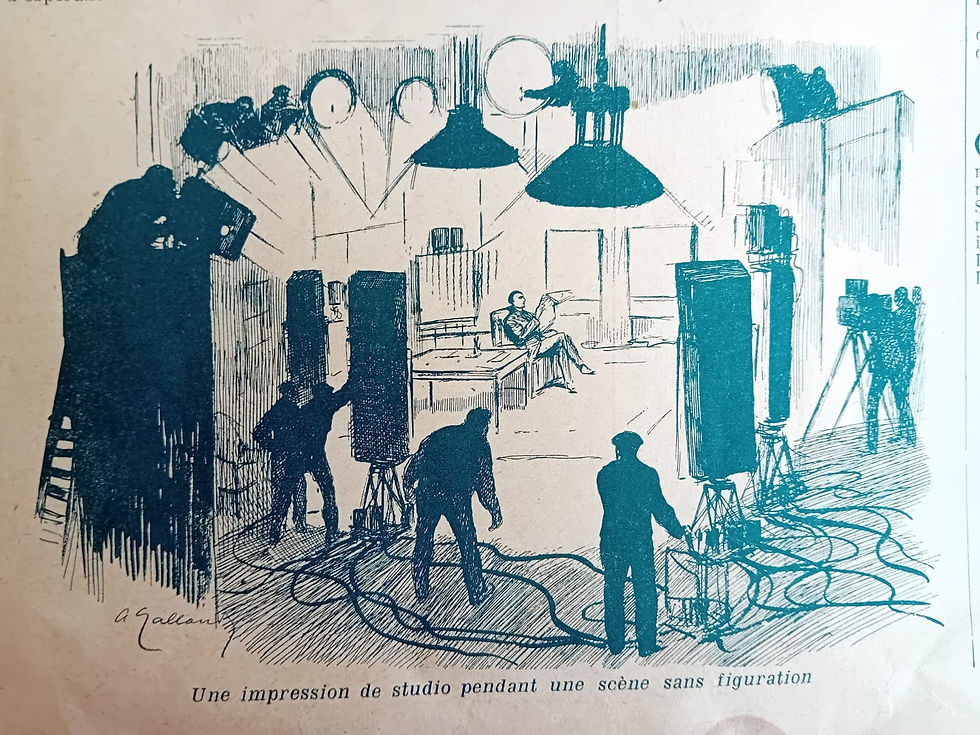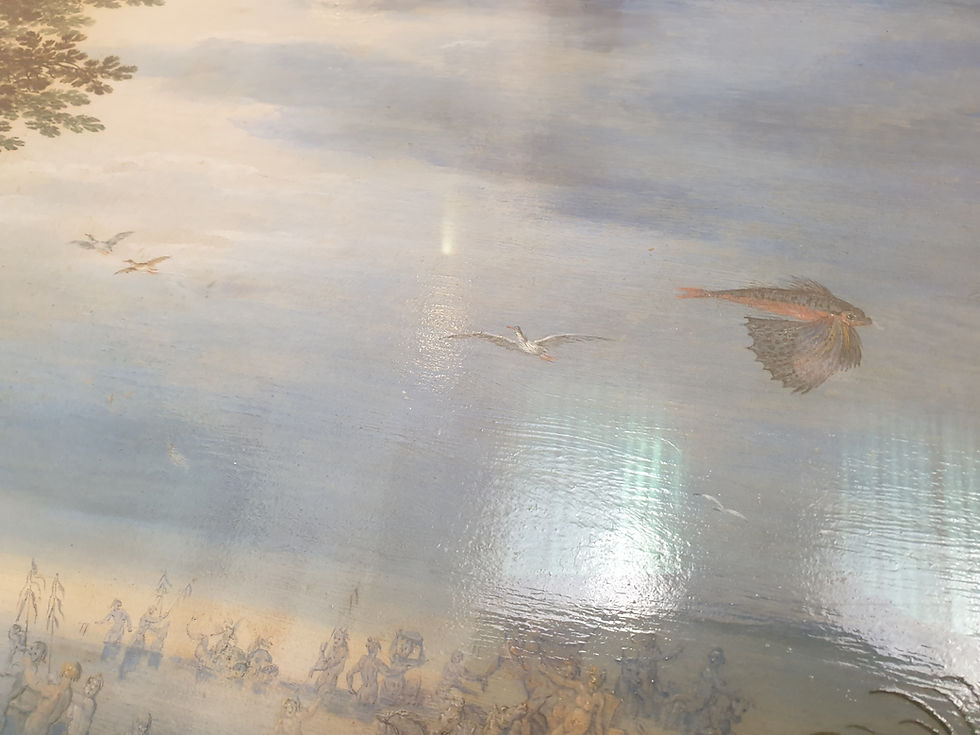THE NYMPHS ARE DEPARTED. SNOW
- Marina Drozdova

- Mar 15, 2023
- 3 min read

The premiere of "Daphne" by Richard Strauss at the Berlin Stats Opera fell in the middle of the Berlinale film festival - and half of the accredited people were swept from the cinema halls to the theater. The premiere was a complete and unconditional full house.
Twice already a gentleman in livery and with a bronze bell walked around the lower foyer, signaling - the curtain is rising!; the lights have already gone out; Opera regulars in Elton John style outfits rushed in through the half-closed doors, while taxis gently honked after them ... And those seeking suddenly available tickets all stood in front of the box office - from which the wise cashier lady looked at them silently and without promising anything: usually she makes sure that the student gets a free cheap ticket, and hundred years old theater goer does not get ripped off.
Almost immediately after the curtain opened, it began to snow on the stage - and practically did not stop until the finale. That was an artistic decision by Romeo Castellucci. Then, when the huge image of the front page of the first edition of Thomas Eliot's poem "The Waste Land" descends on the stage, it will become clear why there is snow:
Winter kept us warm, covering
Earth in forgetful snow, feeding
A little life with dried tubers.
The idea of snow comes from universal dramaturgy of the play - more on that below.
Daphne, as some of us know from studying ancient Greek literature and from reading Google, is a nymph pursued by the god Apollo. The libretto by Joseph Gregor is based on Ovid's Metamorphoses and Euripides' Bacchae. Snow has replaced olive groves, because the summertime bliss has passed - in the broadest sense of the word.

So, Castelucci decided to wrestle Strauss' exquisitely complex score - and he achieved his goal: opera lovers will discuss the scenography of the performance for a long time. In that score “everything interacts freely” (as Nabokov once elegantly formulated the very complex salad that Professor Pnin prepared ...):
- dream objects a la Salvador Dali (the same cover of Eliot), snowdrifts in which the nymph Daphne digs herself a grave;
- performances from Dada and Tristan Tzara to their followers in the 1960s-70s - canisters of fake-blood that the characters pour on each other;
- tricks with clothes, from which the characters try to free themselves as the musical logic develops;
- well, and snow - in fact, snow has taken root on the theater stage in the last thirty years, but here its quantity and symbolism take on a true dimension. At first, snowstorms are a metaphor for Nature's games. I remember the imperishable film "Groundhog Day", in which the character of Bill Murray quoted Chekhov every day: "Winter is ahead and only winter, it will always be cold, very cold ...". And closer to the finale, all these snowflakes turn into a drizzle of melting signs, disappearing codes of the History of Meanings. As you know, the premiere of the opera took place in 1938 – by that time three years have passed since Leni Riefentstal filmed Triumph of the Will, and in 1938 she is filming Olympia. Such is the day of the groundhog - the director informs the public.
Quoting Eliot:
You cannot say, or guess, for you know only
A heap of broken images, where the sun beats,
And the dead tree gives no shelter, the cricket no relief,
And the dry stone no sound of water.
In general, cultural codes jump around the stage like grasshoppers - but they do not lose their logic for a moment. Daphne, having died, in the finale turns not into a laurel tree (as in the myth), but into a stunted uprooted birch tree.
The nymphs are departed.
And their friends, the loitering heirs of City directors;
Departed, have left no addresses.
Vera-Lotte Vera-Lotte Boecker not only perfectly sang the part of Daphne, but also carried on her shoulders the whole dramaturgy of this opera.
Conductor Thomas Thomas Guggeis and other soloists, as well as the choir, were at their best, immersing the audience in luxurious instrumental episodes.




Comments